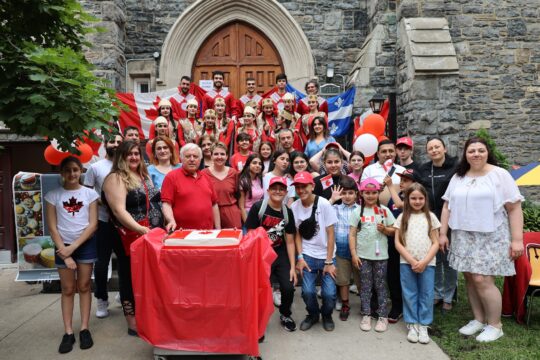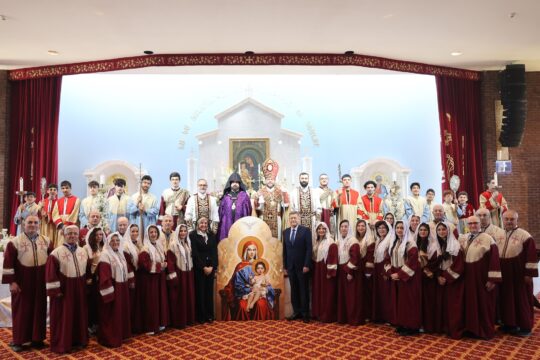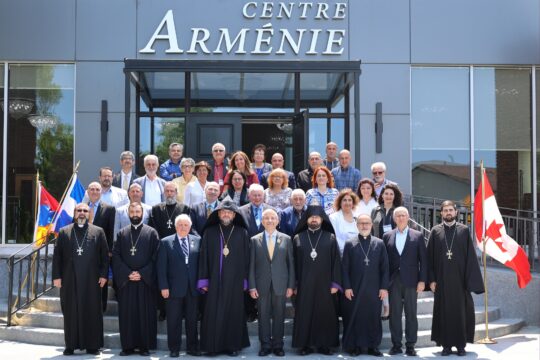 My great grandmother Սիրվարդ Նէնէ, Sirvart, was born to parents Եղիշէ and Եպրաքսէ Գիրիշճեան, Eghishe and Ebrakse Kirishjian, on August 14th, 1912, in Garin, modern day Erzurum, meaning she turned 99 this year, making her one of the few survivors of the Armenian Genocide alive today. She was the youngest child in her family with four older brothers and one older sister. She had lost three of her brothers in Garin at a young age. Her father and uncle were killed by the Turks before the family was deported while her last brother, Vahram, died of hunger and thirst on their way to Mosul. They walked for six months from Garin to Mosul with many other deportees of their city. She lost her sister Araxie many years later in the city of Aleppo.
My great grandmother Սիրվարդ Նէնէ, Sirvart, was born to parents Եղիշէ and Եպրաքսէ Գիրիշճեան, Eghishe and Ebrakse Kirishjian, on August 14th, 1912, in Garin, modern day Erzurum, meaning she turned 99 this year, making her one of the few survivors of the Armenian Genocide alive today. She was the youngest child in her family with four older brothers and one older sister. She had lost three of her brothers in Garin at a young age. Her father and uncle were killed by the Turks before the family was deported while her last brother, Vahram, died of hunger and thirst on their way to Mosul. They walked for six months from Garin to Mosul with many other deportees of their city. She lost her sister Araxie many years later in the city of Aleppo.
In November of 1927, as many Genocide orphans, she married another orphan from her hometown of Garin, named Խաչիկ Քիւրտեան, Khatchig Kurdian . She has four children: Արփինէ, Զաւէն, Վահէ, and Յասմիկ, Arpine, Zaven, Vahe and Hasmig , as well as seven grandchildren and four great grandchildren. In1961, the family moved from Aleppo, Syria to Beirut, Lebanon. My great grandfather passed away in 1974. In 1991 she relocated here to Canada along to be with her children.
Other than her dedication to raising her family and preparing traditional Armenian dishes throughout her lifetime, she perfected the art of crochet as many women from Garin, and since moving to Canada, she has managed to make crochet items for all her children, grandchildren, and great grandchildren as well as fashion many for our church altars throughout Canada. Several of the altar covers she made have been sent to Armenia to be used at churches like St. Hripsime in Etchmiadzin, for which I had the honour of being present at its presentation by our own Parish Priest Rev. Fr. Myron Sarkissian.
My great grandmother possesses valuable and interesting knowledge of Armenian traditions and an eyewitness account of the Armenian Genocide survivors that all Armenians should learn to further educate themselves about the terror that their ancestors faced in 1915. (By: Haig Altounian, 14)


